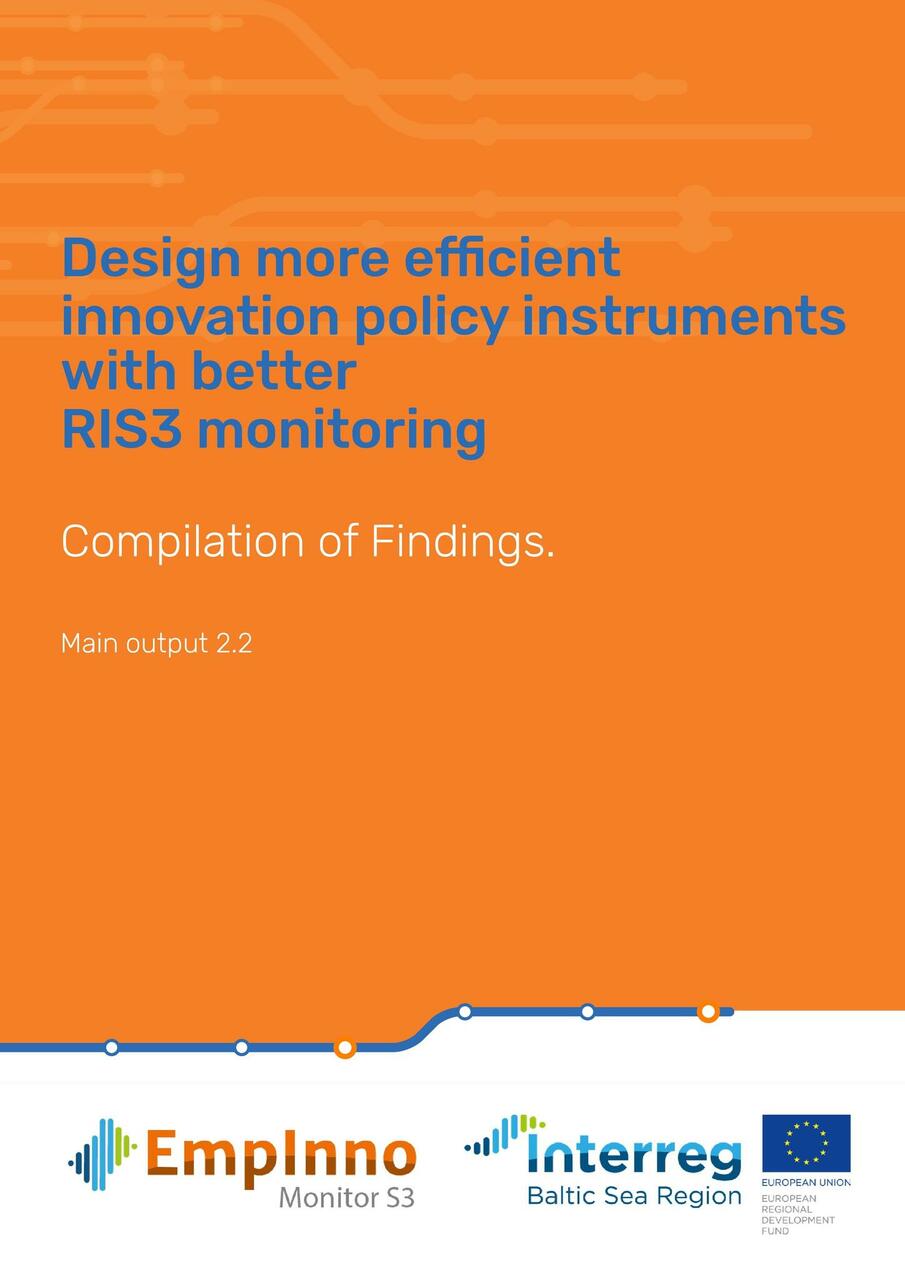Design more efficient innovation policy instruments with better RIS3 monitoring – Compilation of Findings published

To overcome challenges of RIS3 monitoring
was at the heart of project activities of seven partner regions and countries
of the Interreg Baltic Sea Region project EmpInno
Monitor S3. After nearly
two years of intensive work with the implementation bodies as well as actors administrating
and monitoring the smart specialisation strategies, the consortium has laid down
its achievements and results in its compilation of findings. You can download
it here. An even more detailed version can be found in the summary of tested approaches here.
In this, you can learn e.g. how:
- the region Satakunta/FI included in its RIS3 monitoring system a novel 6-step approach with companies and foresight methods through the cooperation with the business development agency “Prizztech”
- the Lubelskie
Voivodship/PL developed a digital and qualitative feedback tool for dialogue
with stakeholders
- in Latvia, the Riga Planning Region started for the first time a regionalised RIS3 monitoring approach and upgraded digital data tools
- Rostock Business advocated to include sub-regional stakeholders and the company perspective into RIS3 monitoring processes in Mecklenburg-Western Pomerania/DE
For these and more regions all partners elaborated
in a structured way for you:

